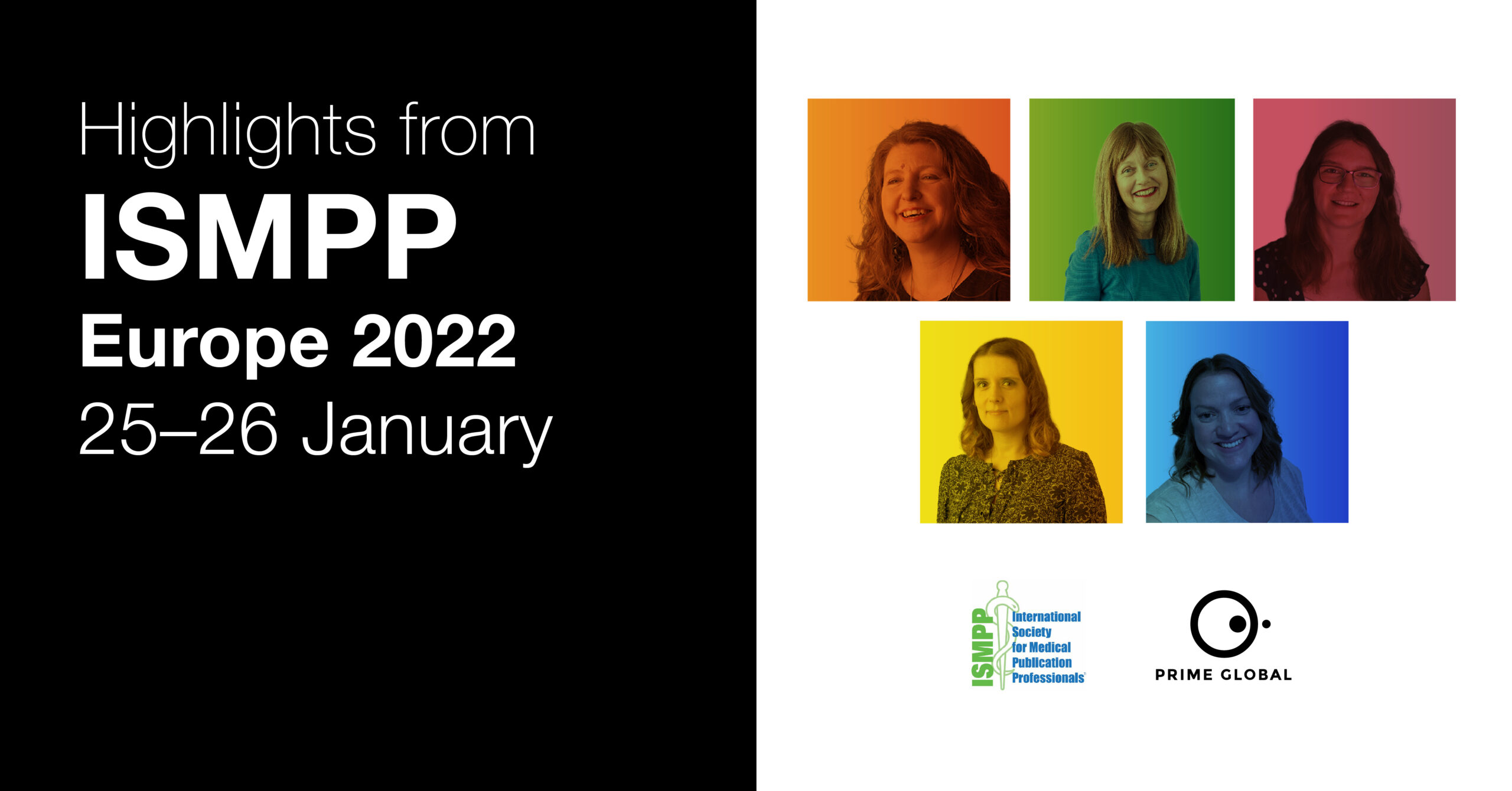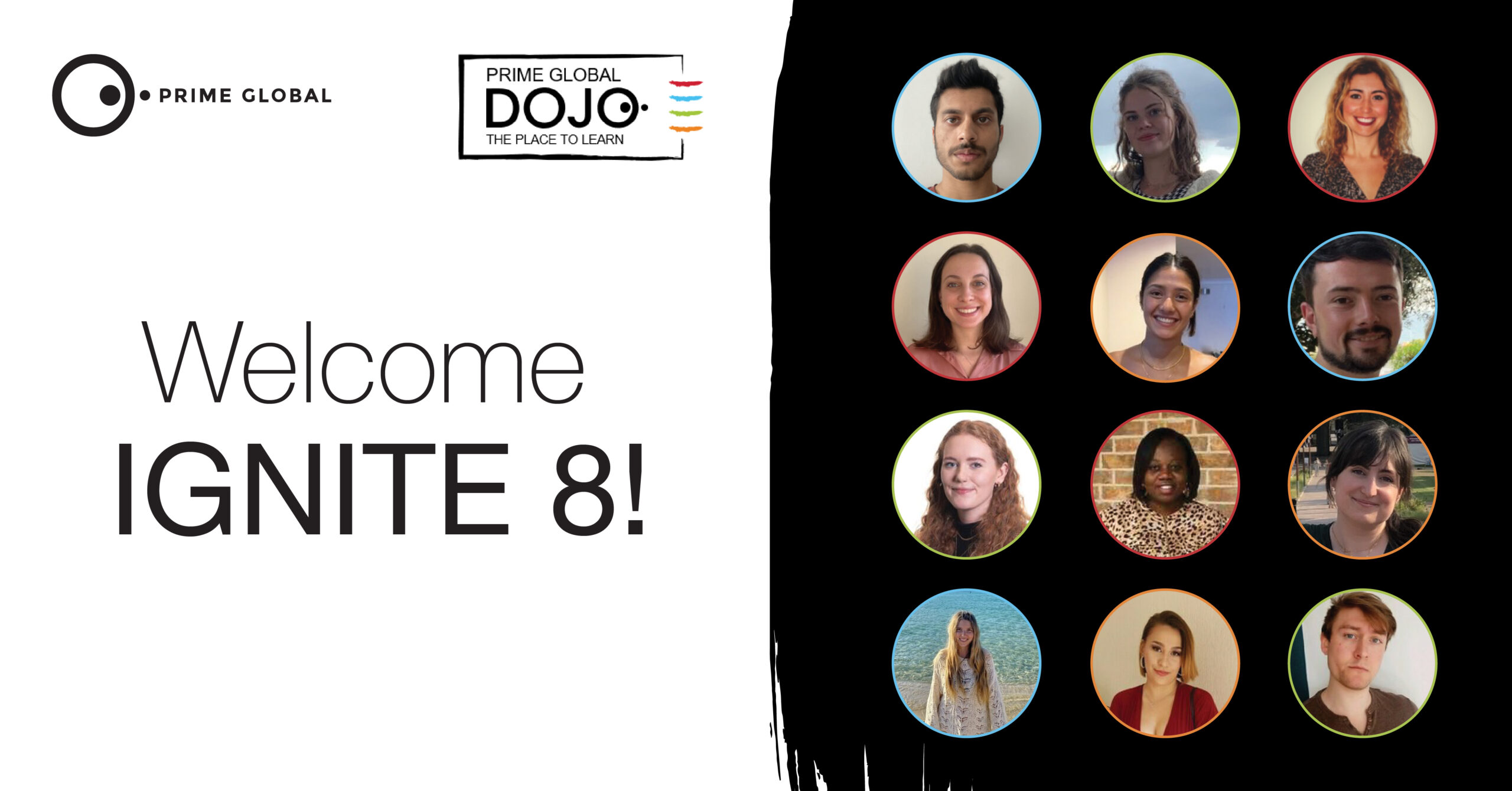This year’s ISMPP Europe meeting was action packed, with Prime Global sending 5 team members, presenting 5 posters, sharing 7 publication extenders, and moderating 2 roundtables! Here, we share some of our key highlights from the conference.
The ISMPP (International Society for Medical Publication Professionals) Europe meeting was held virtually on 25-26 January. It focused on Advancing Our Profession: Driving Leadership and Best Practices in Medical Communications. As always, the conference was a delight to attend, and provided really interesting and topical content to keep us on our toes.
Key conference takeaways:
New guidelines becoming available
An update on the much anticipated GPP4, Good Publication Practice guidelines, was provided by Dan Bridges (Nucleus Global), with the hope to publish to coincide with the 18th Annual Meeting of ISMPP, 9-11 May 2022. It sounds like there will be some very useful additional guidance for the ever-evolving field of publications!
Will Gattrell (Ipsen) and Niall Harrison (Ogilvy Health) announced the development of a new reporting guideline, named ACCORD, for consensus-based methods in biomedical research. This will be available through The Equator Network in due course. They’re currently looking for volunteers to join their own Delphi panel to validate the draft guidelines.
There was also an update by Avishek Pal (Novartis Oncology) on the Authorship Algorithm. It has now been tested by 100 volunteers across 15 organisations and is projected to launch in Q1 2022. A link will be available via the ISMPP Member section to redirect to the microsite once available and it will be freely available to both members and non-members, courtesy of ISMPP.
Patient engagement and inclusion is essential
There has been much discussion on including the patient voice in publications. The majority view is the increasing importance of facilitating patient involvement across all stages in the publication process, including authorship, journal editing, peer reviewing, and in PLS.
There is also a call to action for greater diversity, equity, and inclusion in clinical trials and communications. As an example, Novartis has committed to ensuring greater diversity in clinical trials.
Growing momentum for enhanced content
The benefits of digital features are clear, with publishers including several different types of enhanced content to improve accessibility of data. Many studies have now been published on the metrics around publication extenders that clearly demonstrate the increased readership and comprehension they can provide.
Ipsen will commit to publishing a 250-word PLS for all company-sponsored journal publications that include human studies from July 2022.
Our poster and roundtable topics included:
- Digital
- Enhanced content and publication extenders
- Good publication practice
- HEOR
- Patient advocacy
- Virtual conferences



Click here: Delivery of a practice-changing virtual conference with long-lasting engagement



Strategic publication planning

Scientific communication platform
To find out more about any of these posters or roundtables, contact the team on info@primeglobalpeople.com.




